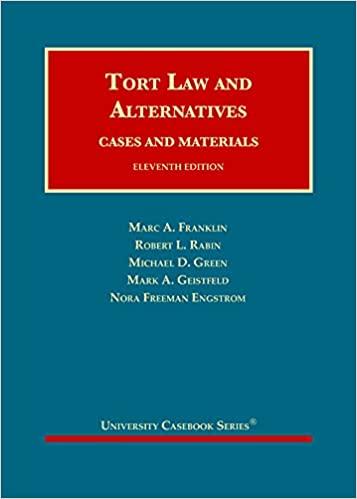Question
Plaintiff was employed in one of the defendant's stores. She suffered a back injury and made a workers' compensation claim. When she was partially recovered,
Plaintiff was employed in one of the defendant's stores. She suffered a back injury and made a workers' compensation claim. When she was partially recovered, she returned to the store on a light-duty assignment that allowed her to work four hours per day. Upon her return, coworkers made fun of her injury and mocked her limitations, sometimes implying by their barbs that the injury was faked. The plaintiff sued for disability discrimination under the state's antidiscrimination statute, retaliation under the state's workers' compensation act, and intentional infliction of emotional distress.
How should a court rule on each of these claims against plaintiff 's employer?
Does it make a difference whether the store manager was aware of her coworkers' behavior?
Whether she complained to higher company officials about it?
Whether the manager took part in the behavior?
If a court finds retaliation for pursuing a workers' compensation claim, should this finding insulate the employer from liability under the state's antidiscrimination statute? Under state tort law?
Step by Step Solution
There are 3 Steps involved in it
Step: 1

Get Instant Access to Expert-Tailored Solutions
See step-by-step solutions with expert insights and AI powered tools for academic success
Step: 2

Step: 3

Ace Your Homework with AI
Get the answers you need in no time with our AI-driven, step-by-step assistance
Get Started


